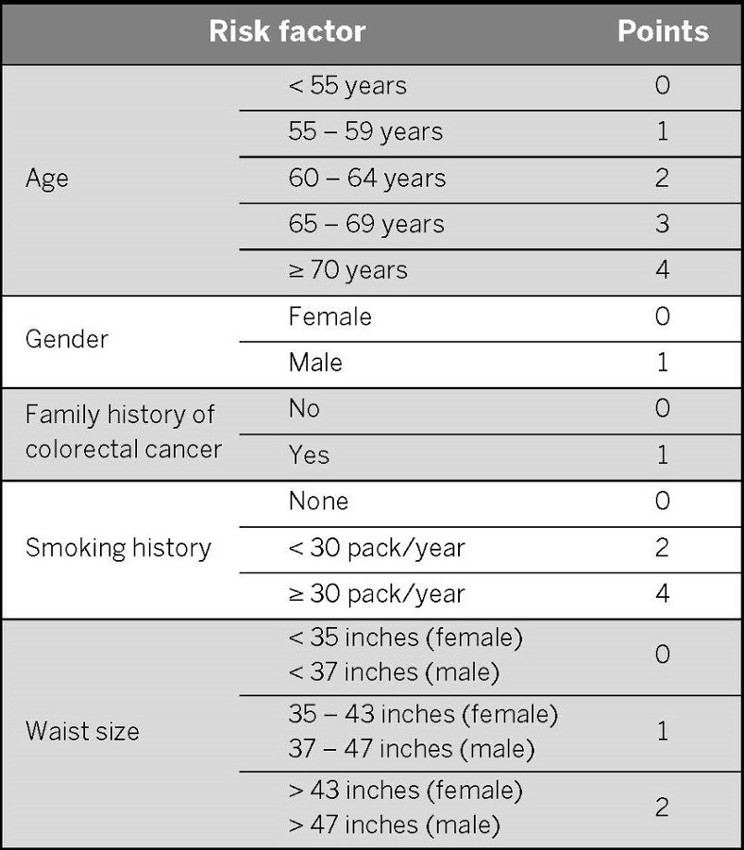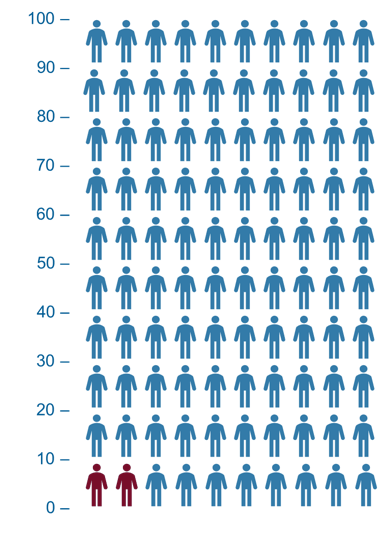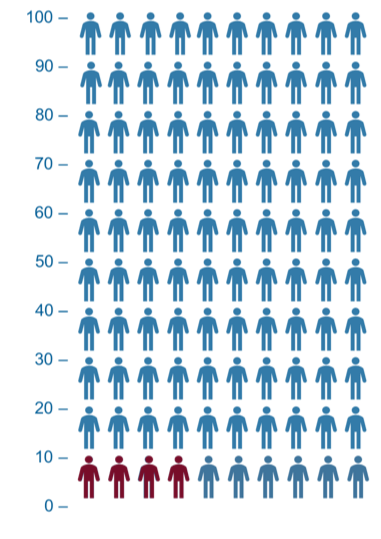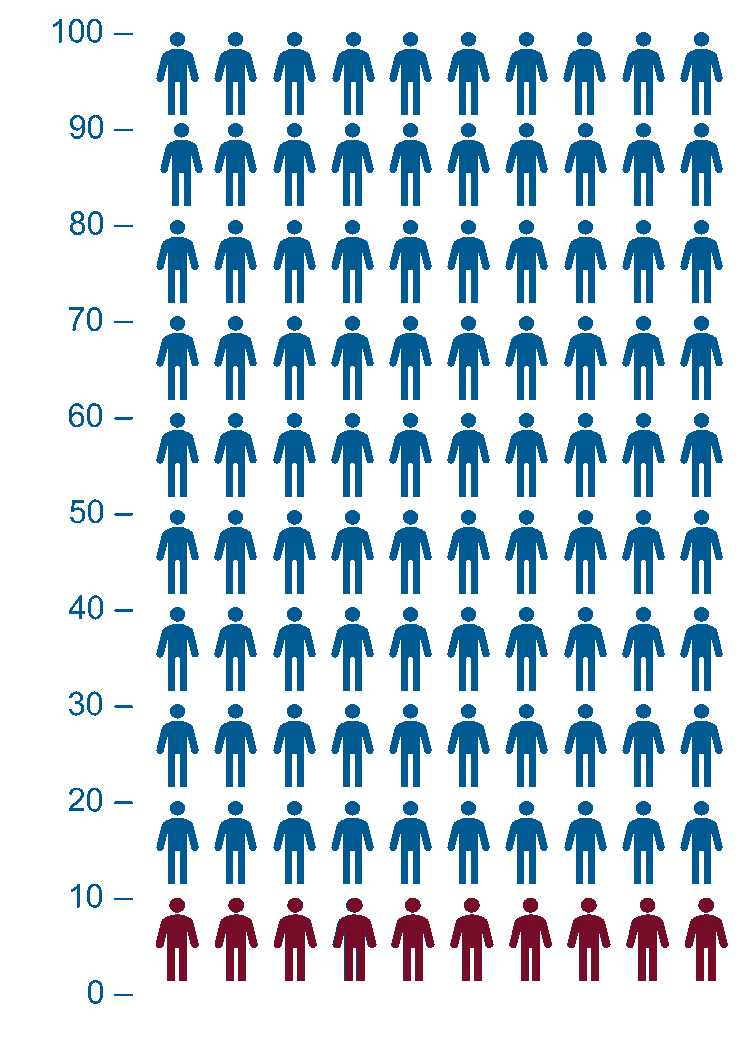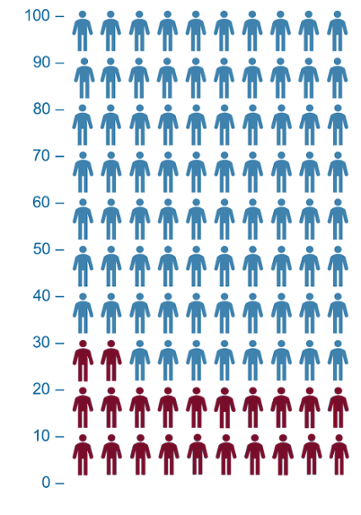INTRODUCTION:
An advanced colorectal neoplasm (ACN) is a colorectal cancer, or a polyp that is 1 cm or larger or has high risk histology (villous elements or high grade dysplasia).
The estimate of your patient’s chance of having an ACN was based on a prediction model that was developed and validated by Dr. Thomas Imperiale and colleagues at IU School of Medicine in an NCI-funded study of 4460 patients who were having their first screening colonoscopy (2993 in the derivation set and 1467 in the validations set). (Imperiale et al. 2015)
Using this model, each patient is assigned points for five different risk factors – age, sex, waist circumference, smoking history and family history – and the points are added up to determine their risk level.
No estimate is perfect: a person’s true chance of having an ACN is impossible to know with 100% certainty. But this validated way of estimating patient risk provides a good estimate.

